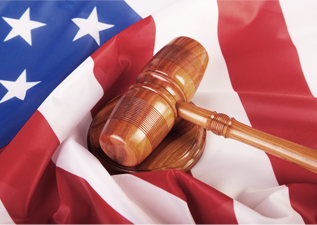What is Child Support Law?
Child support law deals with the legal obligation of a child’s parents to contribute financially to their support, health, education and general welfare These laws are enacted by each state. However, because a child support order remains in effect until terminated by court order or written agreement, administration of the order can become a multi-jurisdictional issue as parents and children relocate. Additionally, when there is a significant change in circumstances of the parents or the child, economically or otherwise, child support orders entered by a court or by agreement of the parents and incorporated into a court order are subject to modification when appropriate.
The obligation to pay child support is considered to be independent of any other rights or responsibilities of either parent. For example, it is quite common for a court to decide questions of child support and parenting time/visitation at the same time, and the judge’s decisions on the two issues may appear in the same order. However, the duty to pay child support and the right to parenting time/visitation are not necessarily interdependent. Even if the primary custodial parent wrongfully denies the other parent his or her parenting time with their child or children, support must still be paid. Willfully withholding child support for any reason can lead to serious consequences, including but not limited, to loss of drivers and professional licenses and possible incarceration.
Obtaining a Child Support Decree
Requesting child support is a relatively straightforward process. If a family law case has already been opened, the parent entitled to support can simply file a motion for support with the court. A similar filing may be submitted in a new case, and the court will schedule an initial mediation for the two parents with a court officer to see if an agreement can be reached, and failing that, a hearing officer will hold a hearing and enter a decision. That decision can be appealed to a judge of the Superior Court of New Jersey in the same county where the hearing officer entered the order. Parenting time with the children as well as payment of health insurance costs, are two relevant factors in the hearing officer or judge entering an order consistent with the New Jersey child support guidelines.
To simplify the process, the New Jersey Supreme court has published worksheets that allow parties to enter income and expense information to arrive at a “presumptive” child support amount. This figure is said to be presumptive because it is possible to deviate upward or downward based on unique circumstances involved in any case.
From an income tax perspective, child support payments are a neutral event. The primary custodial parent need not declare the payments as income, and the non-custodial parent cannot deduct them as an expense. Payments are made to the state child support agency unless agreed otherwise, and they are monitored by the probation department of the county in which the payor resides. Parents who are obligated to pay support should refuse requests for direct payment by the recipient parent if there is an order compelling payment through the state family support collecting agency. Payments are most frequently made by wage garnishment of the payor’s salary if there are regular paychecks received by the payor. This will not occur with self-employed payors unless they draw a regular paycheck.
Modification of Existing NJ Child Support Orders
It is extremely common for child support orders to be modified from time to time to reflect changes in the living circumstances of the parties. As the child grows up, either parent may experience a sudden increase or decrease in income. The child may develop special interests or needs that result in additional expenses. If nothing else, periodic adjustments to child support will be necessary to keep up with inflation and ordinary increases in the cost of living, which are required in most child support orders. These and other factors can justify a modification of the support order, but the party requesting the change has the burden of proving that the changed circumstances meet the applicable legal standard in that jurisdiction.
Child Support Enforcement
In an ideal world every non-custodial parent would pay child support voluntarily. Of course this does not always happen, and it is often necessary to take steps to enforce a support order through the court system, a local government agency, or a private attorney. Child support orders are like other types of civil judgments. They can be collected by garnishing the non-custodial parent’s wages, seizing bank accounts and other personal property, or placing a lien on real estate. Special laws also allow past support to be collected from income tax refunds. Delinquent parents may also face suspension of driving privileges, passports, and professional licenses. In severe cases, a judge may decide to impose jail time as a penalty for non-payment.
Benefits of Hiring an Attorney
If you believe you have a right to collect support on behalf of your child, consulting an attorney familiar with NJ laws will allow you to avoid dealing with the other parent directly. It will also help ensure your child receives as much money as possible without delay. Contact an attorney now to start the process.
Our law office is located in Manalapan. Contact us by contact form or call (732) 972-1600 to schedule a convenient appointment. Evening and weekend appointments are available. We take cases throughout New Jersey, to include Monmouth, Middlesex, Ocean, Somerset, Burlington, Mercer, Morris, Bergen, Essex and Hudson Counties.









